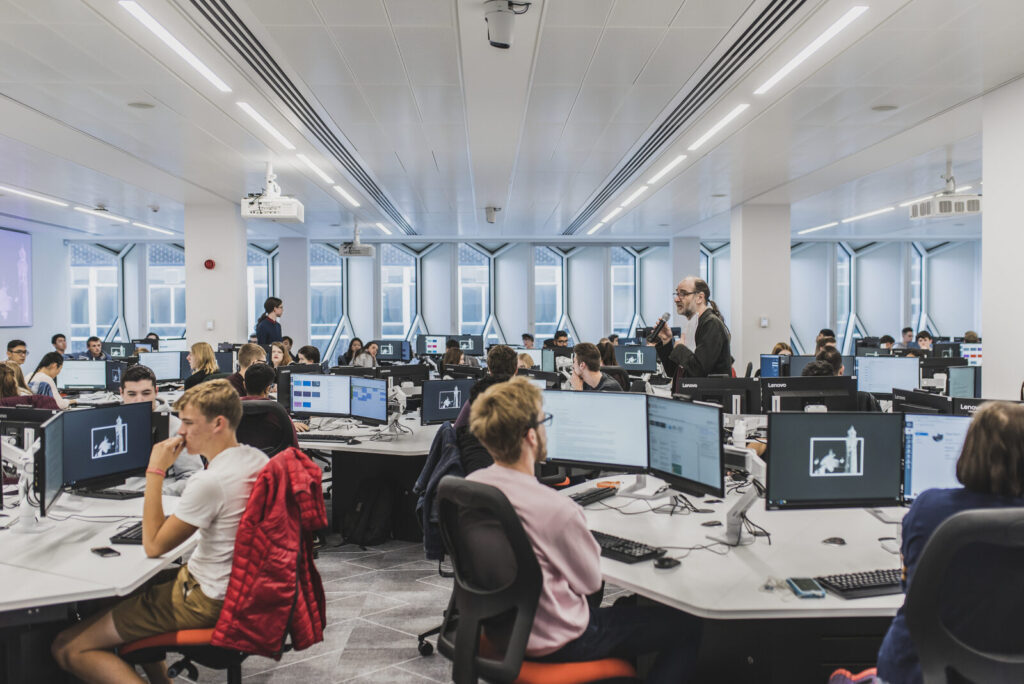In computer based courses you will spend a lot of tutorial time in a computer lab. Whilst you’ll often focus on what you’re coding or designing, there may be discussions and group tasks, like in a traditional seminar.
Background
Computer labs are to help you learn about new technology and how to use digital tools effectively and confidently. This could be designing in Photoshop, programming code in an IDE, working with virtual machines in security simulations, or editing video and motion graphics.
The primary focus being an opportunity to ask about assignments with Teaching Assistants, Demonstrators, and sometimes Lecturers – rather than working through tasks as a class. There is usually an expectation that you will have already attempted much of the task before the lab.
Sometimes, like in the robotics labs where they are the only time you can access equipment with your group, you may need to plan these labs in advance with your group.
It can take a while to get used to computer labs. You may be using equipment, software and terminology that is new to you, or the demonstration could be delivered at a pace that makes it hard for everyone to keep up.
How could this affect me?
- Computer labs need you to have organised your time. Often the tutor will provide handouts to go alongside the session; you may find it helpful to print a copy of the handout from your course page before the lesson.
- They can be busy places, the noise of humming computers, clicking keyboards and people chatting might be a distraction. Some students have found noise cancelling headphones to be a good solution, but be aware of when your tutor is explaining things.
- You may be asked to work in pairs, this can be fun. If it doesn’t seem to be working well for you, do email or talk to your tutor to see what can be done.
- Tutors go round the room to check on process. This is a great way to have your code checked and learning how to work efficiently. If your tutor interrupts the flow of your work, do discuss having a coloured post-it note on your desk to show that you would prefer not to be disturbed at that time.
- There will be deadlines. Plan out your work and ask for help if you think you may not make them.
Do make sure you have your equipment to hand. You may need headphones or a graphics tablet for example. You will be told if these are needed during the first few weeks.


 Back
Back 